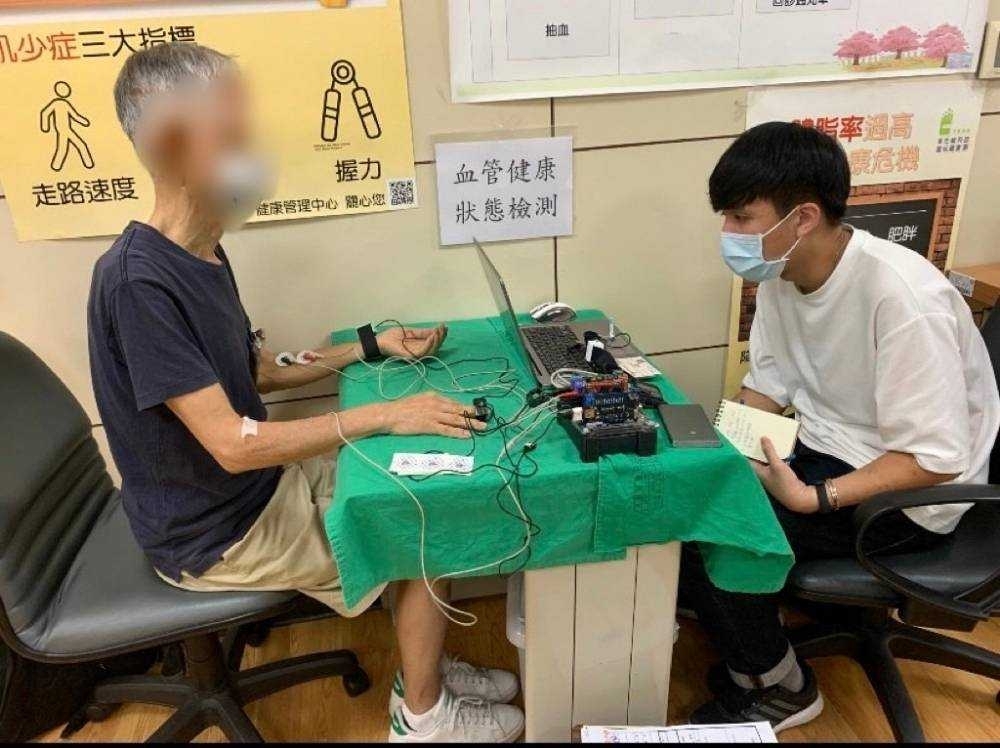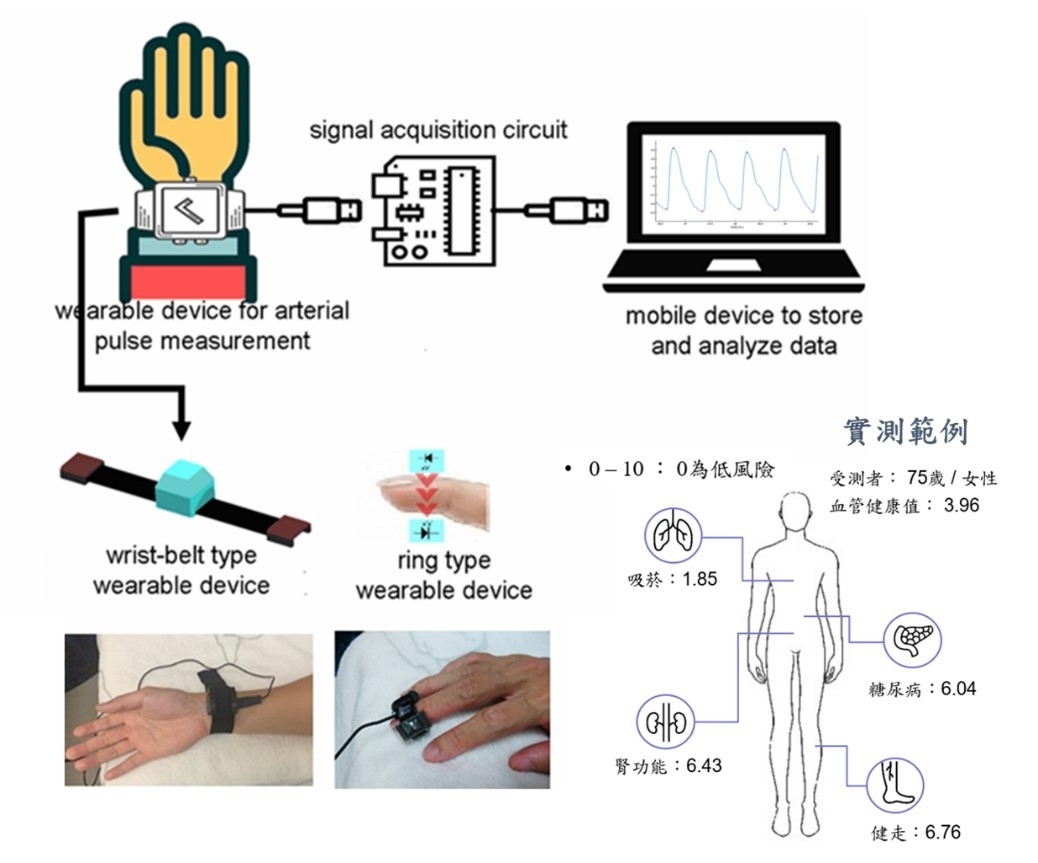

Professor Hsin Hsiu from the Graduate Institute of Biomedical Engineering at Taiwan Tech has developed a wearable AI smart device. With just a one-minute test, it can evaluate the overall vascular health status and, through analysis, simultaneously identify the risks of 12 diseases. These include vascular health, smoking hazards, kidney function, walking effectiveness, metabolic syndrome, diabetes, frailty syndrome, environmental risks, as well as new coronavirus, vaccine side effects, muscle atrophy, and dementia. Professor Hsiu has utilized data accumulated from medical institutions to construct AI algorithm models for various diseases, providing auxiliary information for health or risk assessment. With only pulse wave measurement required, disease risks can be determined quickly, efficiently, and safely, guiding timely referrals to appropriate medical departments. Various applications have undergone formal clinical research and paper publications.

Professor Hsin Hsiu from the Graduate Institute of Biomedical Engineering at Taiwan Tech has developed a wearable AI smart device that requires only a one-minute pulse wave measurement. Utilizing data accumulated from medical institutions, the device constructs AI algorithm models tailored for various diseases, providing auxiliary information for health or risk assessment.
Professor Hsiu explains that the AI smart wearable device, including wristbands and rings, can measure changes in vascular pulse waves. The cardiovascular system distributes blood flow throughout the body via arteries. When chronic diseases affect vascular characteristics or blood flow supply, these changes are reflected in pulse wave variations. Therefore, the device is suitable for early detection or screening of many chronic diseases.

Professor Hsin Hsiu from the Graduate Institute of Biomedical Engineering at Taiwan Tech has developed AI smart wearable devices, including wristbands and rings, which measure changes in vascular pulse waves and can simultaneously identify risks for multiple diseases.
Professor Hsiu gave an example, stating that the medical community has long been interested in the correlation between vascular health and mental health. Through this detection, the risk of dementia can also be reduced. A collaboration between Taiwan Tech and the Peace Presbyterian Church in Taiwan's USR (University Social Responsibility) program involved an elderly individual who used the AI wearable device to monitor their health for two consecutive years. On one occasion, they noticed a sudden increase in the risk of mental health problems and promptly went to the hospital for examination, where they were diagnosed with mild dementia. This effective detection helped in early intervention and reduced the worsening of dementia.
Professor Hsiu mentioned that this research technology has been used in disease prevention studies with various hospitals, including Taipei City Hospital Renai Branch and Tri-Service General Hospital, for over a decade. Taking the side effects of the COVID-19 vaccine as an example, in collaboration with the cardiology department at Shuangho Hospital, they used the wearable AI smart device to detect the side effects of vaccines in advance. Currently, the accuracy rates are 94% for BNT (AUC recognition performance), 77% for Moderna, and 87% for AZ. This collaboration with Shuangho Hospital won the National Innovation Award in 2023.
Reflecting on the motivation behind developing this technology, Professor Hsiu mentioned childhood fantasies from science fiction movies where one could scan through a door to know their overall health status. Today's research is gradually moving towards this vision. Currently, the team is collaborating on medical research for breast cancer and colorectal cancer, aiming to further assist in detecting the vascular neoplasms of cancer and evaluating treatment prognosis.